All flight operations from Terminal 2 has been shifted to Terminal 1 till further notice. For flight information, kindly contact the concerned airline.
Delhi Airport has implemented a range of climate change adaptation and mitigation measures to reduce its environmental impact and build resilience to climate-related risks.
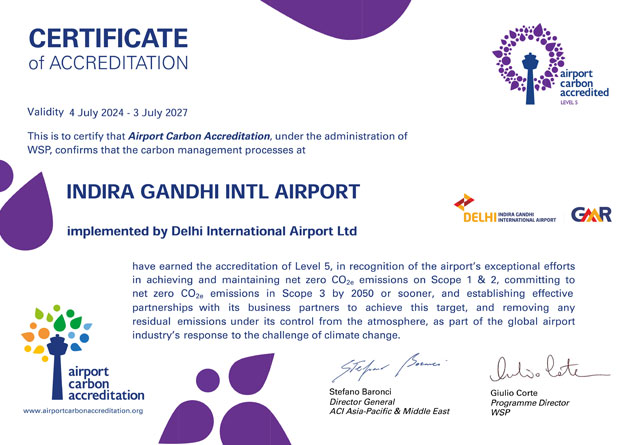
For GHG management, DIAL follows the target-oriented approach of Airports Council International’s Airport Carbon Accreditation (ACA) Program. In 2020, DIAL set a target to achieve net zero carbon emission airport by 2030. In 2024, DIAL successfully achieved “Level 5 under ACI ACA”, the first airport to achieve Level 5 status in Asia Region. Continuous focus on energy and fuel conservation adoption of renewable energy and other less emission intensive processes pursued by Delhi Airport has ably complimented the Carbon Reduction initiatives. DIAL being subsidiary of GMR Airport Limited is aligned with the commitment made under United Nations Global Compact - https://unglobalcompact.org/what-is-gc/participants/168946-GMR-Airports-Limited
Delhi Airport has implemented a range of climate change adaptation and mitigation measures to reduce its environmental impact and build resilience to climate-related risks.
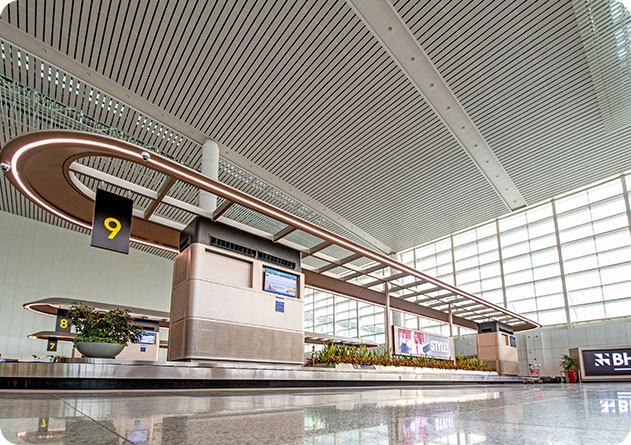
The airport has incorporated climate resilience into its infrastructure design, ensuring that buildings and facilities can withstand extreme weather conditions. DIAL has achieved LEED Gold as New Construction and IGBC Platinum as Existing Building for Terminal 3. In 2019, Terminal 3 had also received “Platinum Level” in Performance Excellence in Electricity Renewal (PEER) certification system from the United States Green Building Council (USGBC). Terminal 1 at Delhi airport is developed as per LEED standard and it has already received LEED Platinum Per-certification.

Rainwater harvesting, rainwater retention tank and stormwater drainage systems have been strengthened to manage heavy rainfall and prevent flooding, ensuring uninterrupted operations during monsoon seasons.
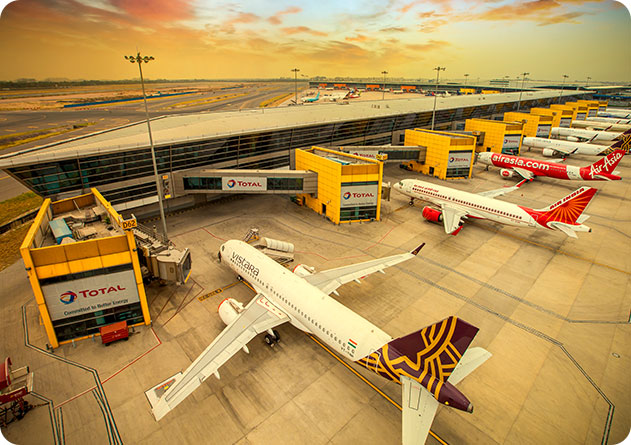
Contingency planning and risk assessments help the airport adapt to climate-related disruptions, such as extreme temperatures or air quality issues, ensuring smooth operations.
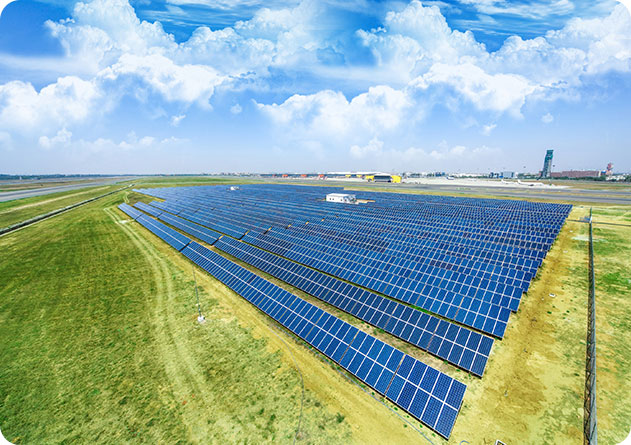
DIAL has installed 7.84 MW solar Power plant in airside area of the airport. DIAL also sources additional renewable based electricity through open access and reduce energy indirect emissions. Currently it uses 100% renewable energy for its operation. DIAL has reduced its electricity related emission to Zero.
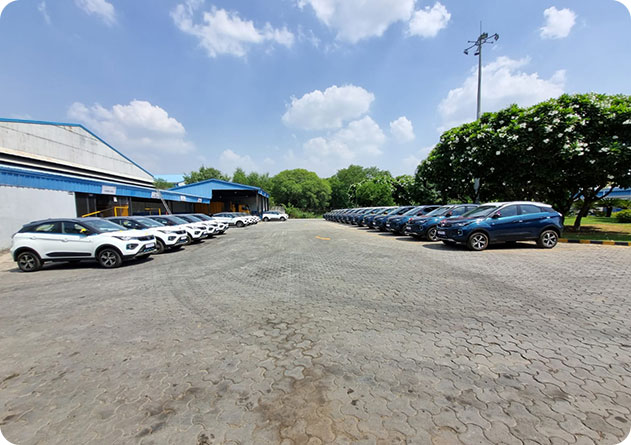
DIAL has adopted electric vehicles and developed the required infrastructure at Delhi Airport. Currently 100% of DIAL owned car fleet are EVs. DIAL’s objective is to make Delhi Airport as Green Transportation Hub and is working with its airline partners operating from Delhi Airport for adopting EVs wherever possible. DIAL has also adopted other technological measures such as green taxing by utilizing TaxiBots at Delhi Airport, which reduces aircraft’s fuel consumption during taxi by 200-240 L ATF/taxing/aircraft and corresponding emission reduction from 630-750 kg of CO2/flight (taxi out).

DIAL initiated Waste to Wealth programs by implementing 3R (Reuse, Recycle and Recover) Concept and has intention of Zero disposal to Landfill. Under this initiative, DIAL has set up an Integrated Solid Waste Management Plant of 12TPD capacity. It consists of Material Recovery Facility, Biogas Plant and Grass Palletization plant. The plant is currently operational and working towards Zero Waste to Landfill.
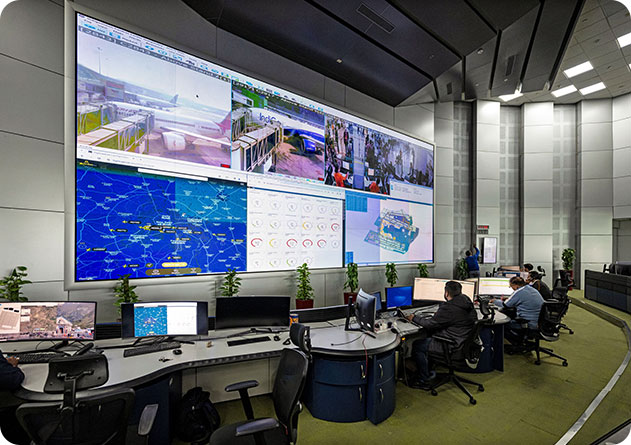
Delhi Airport has implemented several operational excellence measures to reduce emissions and enhance sustainability. The Airport Collaborative Decision Making (A-CDM) system optimizes air traffic flow, reducing delays, fuel consumption, and aircraft emissions. Additionally, Bridge Mounted Equipment (BME), including Fixed Electrical Ground Power Units (FEGPU) and Pre-Conditioned Air (PCA), replaces aircraft auxiliary power units (APU) at Terminal 3 and Terminal 1 aerobridges, further reducing emissions. The adoption of electric vehicles and infrastructure development promotes clean transport, while TaxiBot facilitate green taxing, reducing fuel consumption and emissions during taxiing. The new Eastern Cross Taxiway (ECT) reduces taxi times, saving aviation fuel (ATF) and cutting CO2 emissions. Together, these measures contribute significantly to operational efficiency, sustainability, and a reduced carbon footprint at Delhi Airport.

DIAL is ensuring that all the suppliers and service providers who are all directly associated with Delhi Airport have responsibility towards ESG Goals by providing Supplier ESG code of conduct and to enhance disclosures.